
Association of Applied Technical Sciences
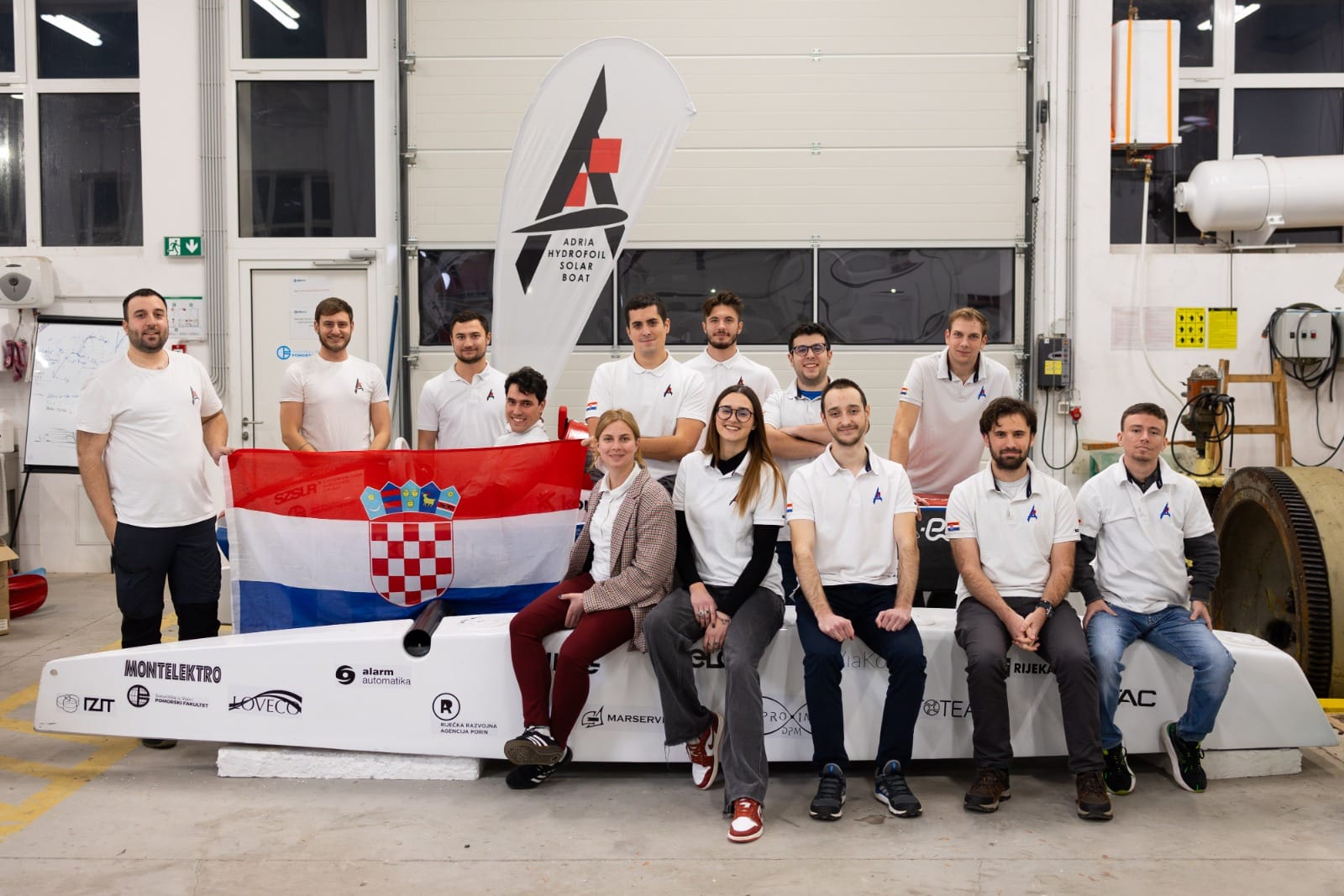
Our team consists of a diverse group of 12 individuals with expertise spanning various fields, including electronics, mechanics, shipbuilding, and marketing. We are primarily based at the University of Rijeka, with members from both the Faculty of Engineering and the Faculty of Maritime Studies. Our team has a strong foundation in technical knowledge and hands-on experience, which allows us to independently manage and execute projects. We also collaborate closely with external partners, including universities, and industry professionals, who provide valuable support and resources. Together, we work toward innovative solutions and successful project outcomes, particularly in the areas of sustainable technology, education, and shipbuilding.
The Adria Energy Class Boat “Vilson” is a project by the Applied Technical Sciences Association, where students are tasked with designing an energy-efficient vessel for the Monaco Energy Boat Challenge. The project involves designing the boat’s cockpit, propulsion system, and building the battery pack. The project’s goal is to independently design and build a vessel for the “Energy Class” at the Monaco Energy Boat Challenge. The boat will feature zero-emission technology and energy storage based on our previous solar-powered race boat prototype, Delta One.
AECB is a catamaran powered exclusively by electricity, with a 20kW engine and a 10 kW/h battery. The boat’s modular design allows quick assembly and disassembly for easy transport. It will feature composite hulls and a central light weight cockpit made from carbon fiber. Telemetry data will be transmitted in real time via 5G/LTE or satellite.

University of Cambridge
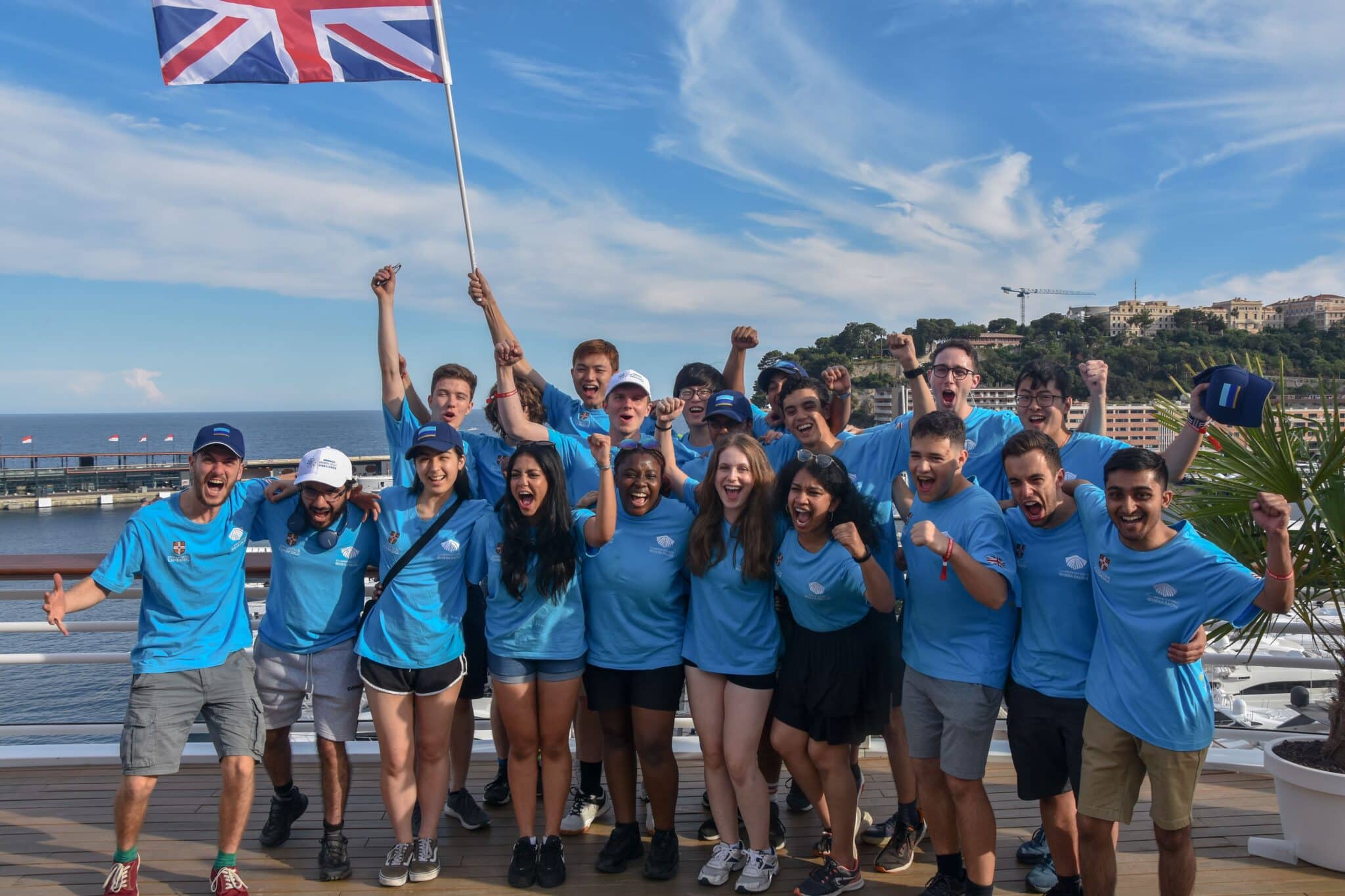
Cambridge University Riviera Racing is a team of versatile students within the Engineering Department, each bringing a unique set of strengths to contribute to our groundbreaking mission to design and build a catamaran racer to compete at the Monaco Energy Boat Challenge. Now in our second year, the team continues to be guided by two central ambitions: to serve as a testbed for cutting-edge sustainable technology with leading industry partners, and to provide a hub for inventive students to develop their skills through a real-world engineering challenge.
Building on the successes and learnings from our first boat, Meridian, this build cycle represents a reinvention of our concept to focus on reliability, modularity and sustainability. Key changes from last year include a bespoke outboard unit, developed in conjunction with Lynch Motors to reduce weight by 50%, and a custom aluminium enclosure for all batteries and electronics, developed by CP Cases to allow interchangeability and future development. Combined with our new battery, designed in-house and using prismatic blade cells, we aim to create a competitive platform which can be reused in future years, reducing our environmental impact and allowing us to focus more on the development of technologies such as foiling, computer vision and hydrogen power.

Danmarks Tekniske Universitet
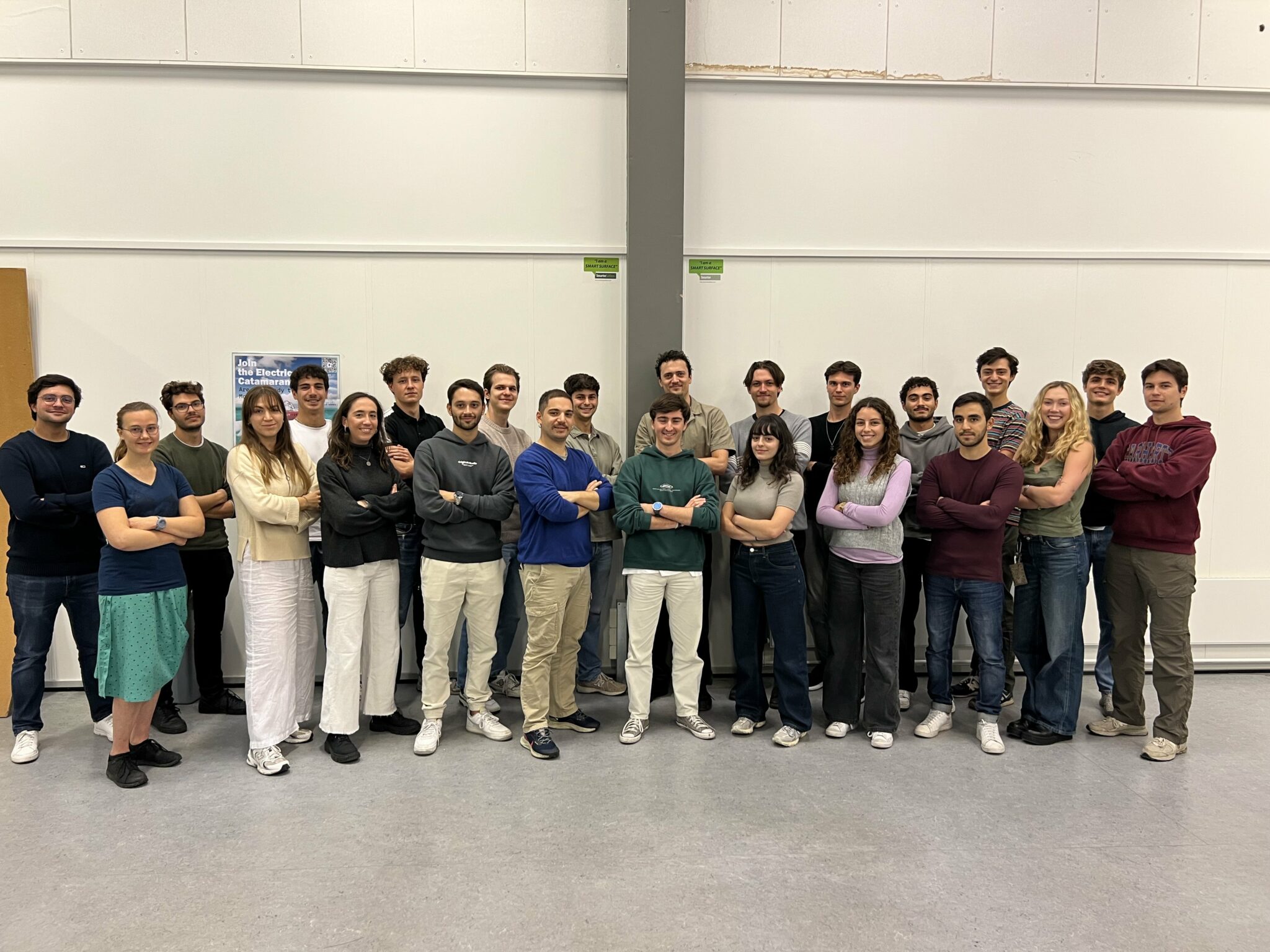
We are DTU Float Forward, a passionate team of 32 students from the Technical University of Denmark (DTU), a leading global university renowned for its research and education in technology and natural sciences. We have 5 professors overseeing the project and helping students. At DTU, we are driven by a mission to develop technology for people, fostering innovation to address societal challenges. Our team is dedicated to advancing maritime engineering by competing in the Monaco Energy Boat Challenge, where we aim to showcase our cutting-edge electric catamaran powered by sustainable energy solutions. Join us as we navigate towards a greener future in maritime technology!
Our core objective is to establish a robust foundation that seamlessly integrates state-of-the-art propulsion technologies and alternative energy storage systems like hydrogen and fuel cells. This year, our focus is on constructing a durable and modular hull. This modular approach is critical as it enables the swift interchange of various technological innovations without the necessity of reconstructing the hull for each new advancement. It will allow us to focus more of our resources on researching and integrating the technologies of the future in the coming years. We have a dedicated team working on a linear fin propulsion concept. This novel technology is projected to deliver a 13% increase in efficiency compared to traditional propellers. Although it won’t be featured in this year’s catamaran, the development of a functional prototype will position us as formidable contenders for the innovation prize, underscoring our commitment to redefining the paradigms of marine propulsion.

Università di Genova
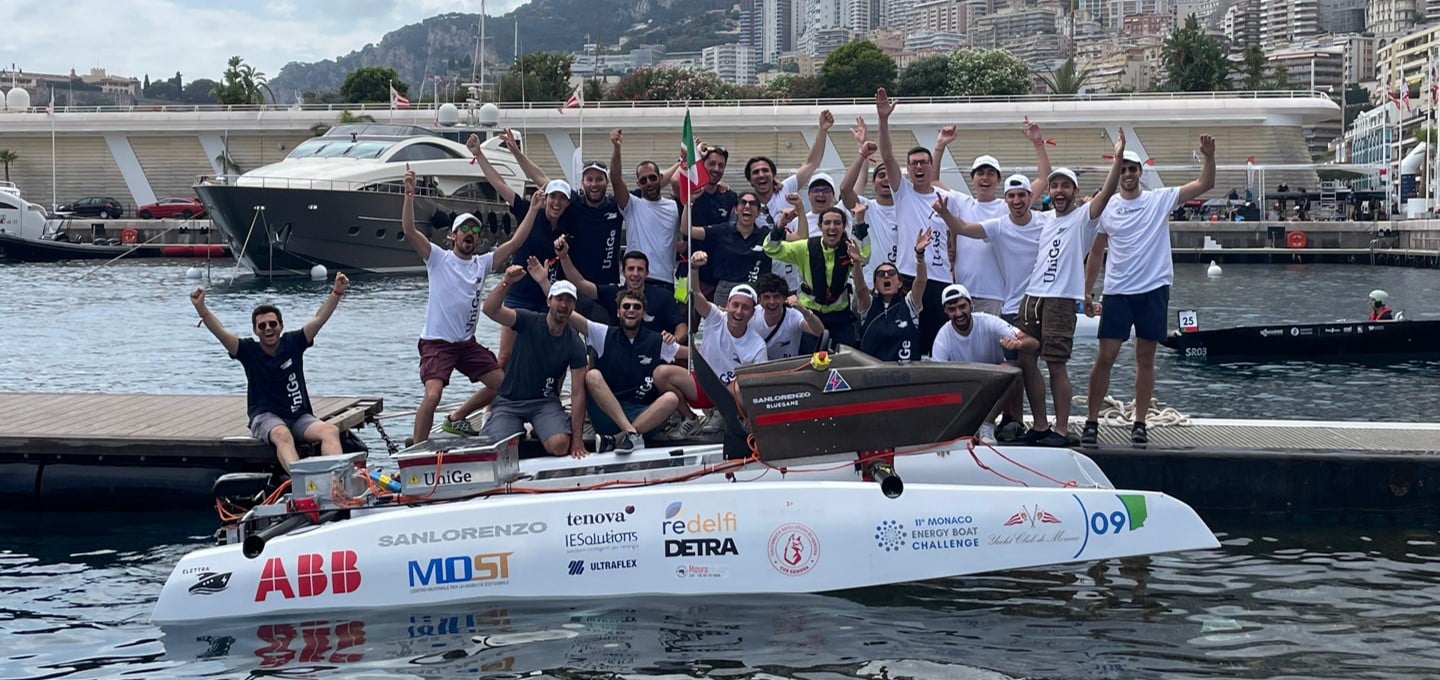
The team is composed of BSc students, MS Students and PhD Students in Electrical, Electronics, Marine Engineering and Naval Architecture, supervised by a team of researchers and Professors of marine and electrical engineering. This is our second participation in this competition. The main objective is to create a multidisciplinary collaboration in our core research field between young researchers and students of our Department.
The Elettra Project focuses on developing an innovative electric catamaran. Led by a team of engineering students, it emphasizes lightweight construction, high-power and energy-dense powertrains, and cuttingedge custom propellers. Competing in the Monaco Energy Boat Challenge, Elettra seeks to lead in ecofriendly maritime transport while offering students hands-on experience with advanced technologies. The project aims to advance green marine solutions, maximize energy efficiency, and cultivate student innovation through collaboration and competition-driven challenges.

Arts et Métiers
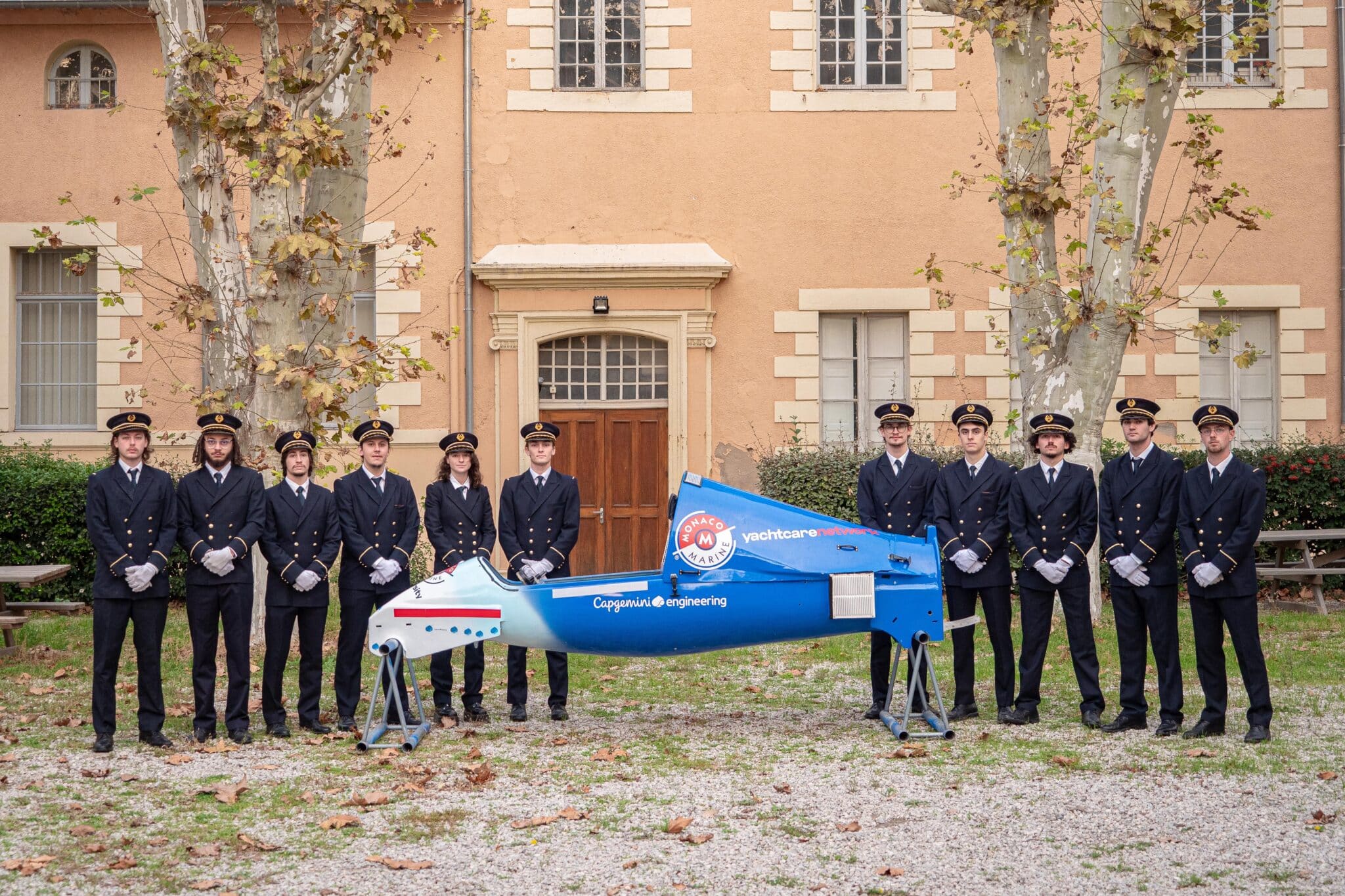
This year, our team is composed of 13 students from the Institute of Technology : Arts & Métiers, their supervisors and 3 consulting engineers from Capgemini Engineering. This versatile, rigorous and creative team allows us to put forward and develop all the skills of our members to carry out this ambitious project.
This year, our project has 3 parts: -Redesign of the hull and the entire structure of the boat. The aim is to lighten the hull by changing its geometry, to add a carbon structure. -Overhaul of the entire engine transmission, change of the engine, propeller. -Update of the electrical and electronic part: introduction of 4G communication, new sensors and a better, data processing.

Universitas Indonesia
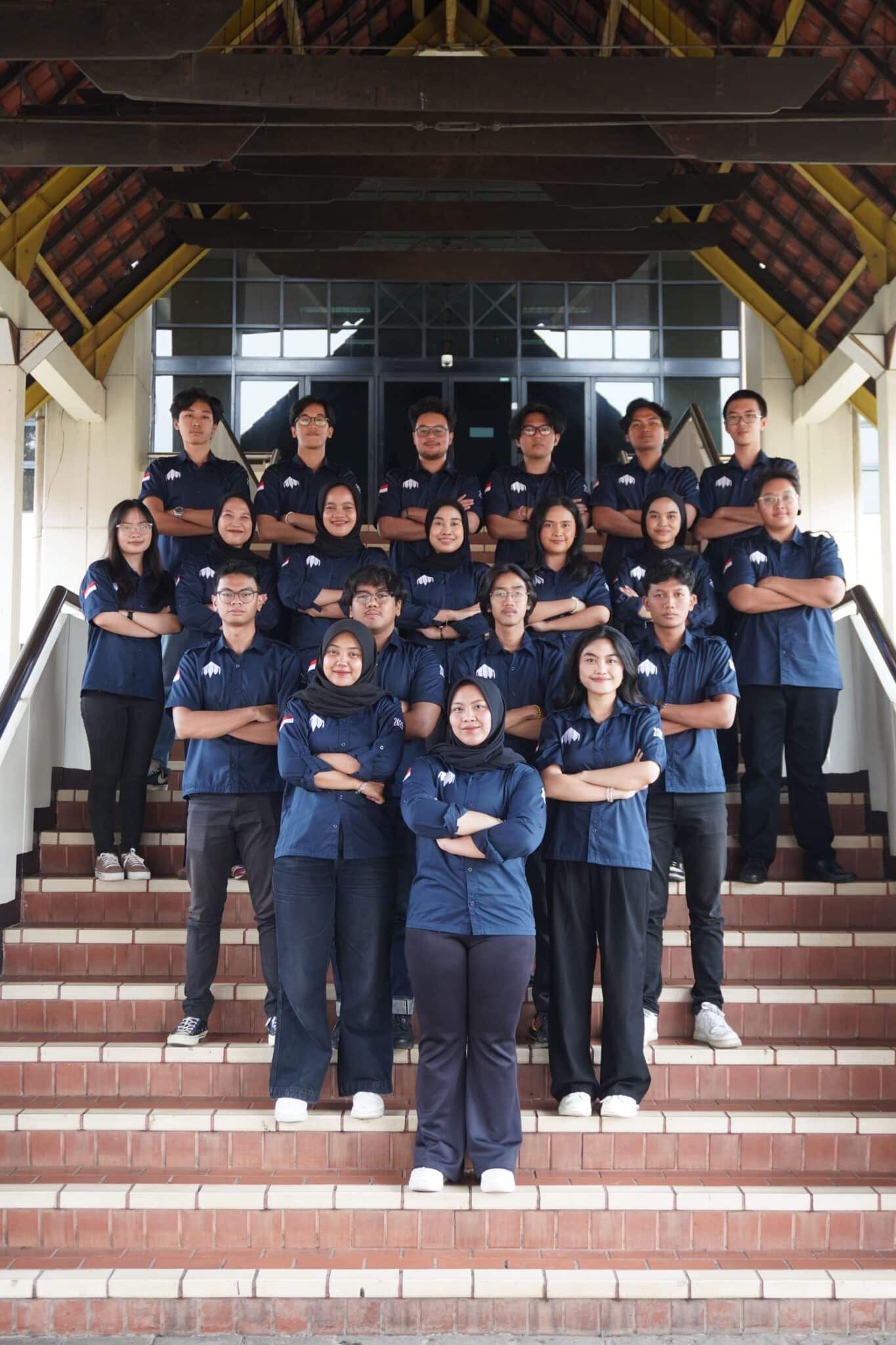
Hydros Team UI is an international boat racing team founded in 2016 by the Mechanical Engineering Department, Universitas Indonesia. The team serves as a platform for students to develop their skills in Naval Architecture and sustainable maritime technology. Competing globally, Hydros Team UI participated in the Hydro Contest (2016–2018). Since 2019, the team has proudly represented Indonesia in the Monaco Energy Boat Challenge, focusing on the Energy Class category. This year, Hydros Team UI comprises 19 passionate members eager to innovate further and compete in the 2025 MEBC. With a mission to inspire and lead in sustainable marine solutions.
The Hydros Team UI has integrated a cutting-edge propulsion system, featuring a custom-designed 10.5 kW electric motor from Golden Motor, which is distinguished by its DC technology and reversible rotational capability. With an lE5 efficiency rating, this motor operates with high effectiveness. To address maneuvering limitations, the team has developed precision-cut rudder blades designed with the NACA 0015 airfoil, which optimizes the lift (CL) and drag (CD) characteristics. These modifications are expected to substantially enhance the vessel’s maneuverability, particularly given the unique attributes of the 10.5 kW electric outboard engine. This combination aims to balance hydrodynamic efficiency with stability, ensuring improved operability.

Ecole supérieure d’Ingénierie Léonard de Vinci
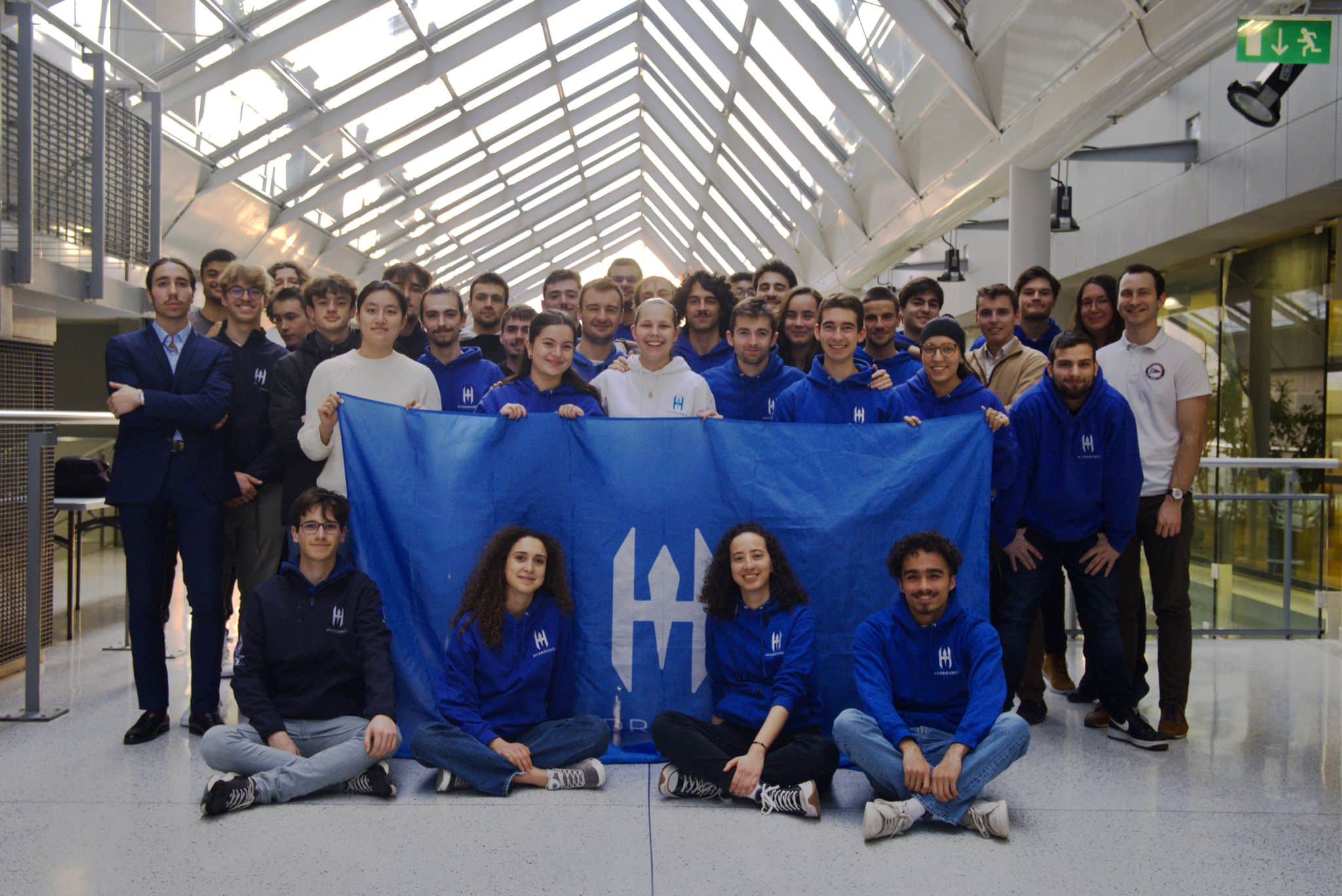
The Monaco Energy Boat Challenge (MEBC) team from HydroVinci is a group of passionate engineering students dedicated to sustainable marine innovation. Combining expertise in energy systems, hydrodynamics, and mechanical design, they develop eco-friendly boats powered by renewable energy. Their project-based approach fosters teamwork, technical skills, and creativity, enabling them to compete internationally while addressing the challenges of clean energy and sustainable mobility in the maritime industry.
Our project for the Monaco Energy Boat Challenge introduces two key innovations this year: a spherical wind turbine and a recyclable fiber hull. These advancements aim to enhance energy efficiency and sustainability. By integrating renewable energy solutions and eco-friendly materials, the project focuses on maximizing performance while reducing environmental impact. Our goal is to push clean energy boundaries in maritime transportation and showcase cutting-edge sustainable technologies.

Bilbao School of Engineering, University of the Basque Country
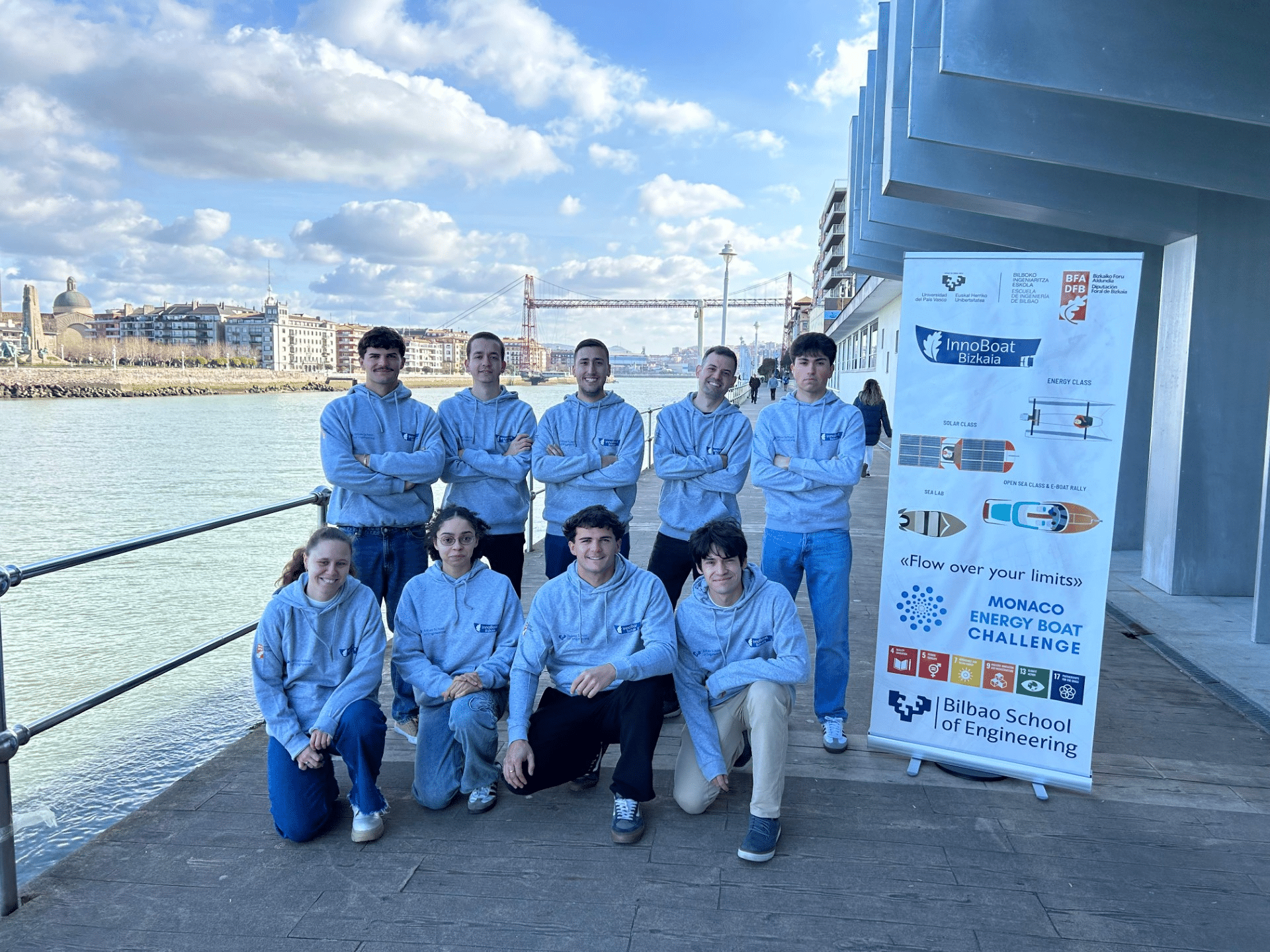
InnoBoat Bizkaia is a project formed by a multidisciplinary team from the Bilbao School of Engineering (EIB) that integrates the experience and knowledge of the different fields of engineering. This team is dedicated to developing innovative projects in the field of nautical engineering and maritime sustainability.
Our ultimate vision is to create a multidisciplinary team where students from diverse backgrounds converge with a shared ambition: to create a competitive, innovative and sustainable ship. As we embark on this exciting journey, we seek to forge strong ties with local businesses, envisioning the birth of a pioneering project right here in Bilbao. Our goal is to rival the best teams in the competition and faithfully represent the Basque industry and university. We are committed to embodying the values and quality that define our region. Through this project, we aim to gain profound knowledge and skills, allowing us to contribute meaningfully to the field of marine engineering. We are determined to showcase the excellence of our university and the innovative spirit of the Basque Country on an international stage.

Università degli Studi di Messina
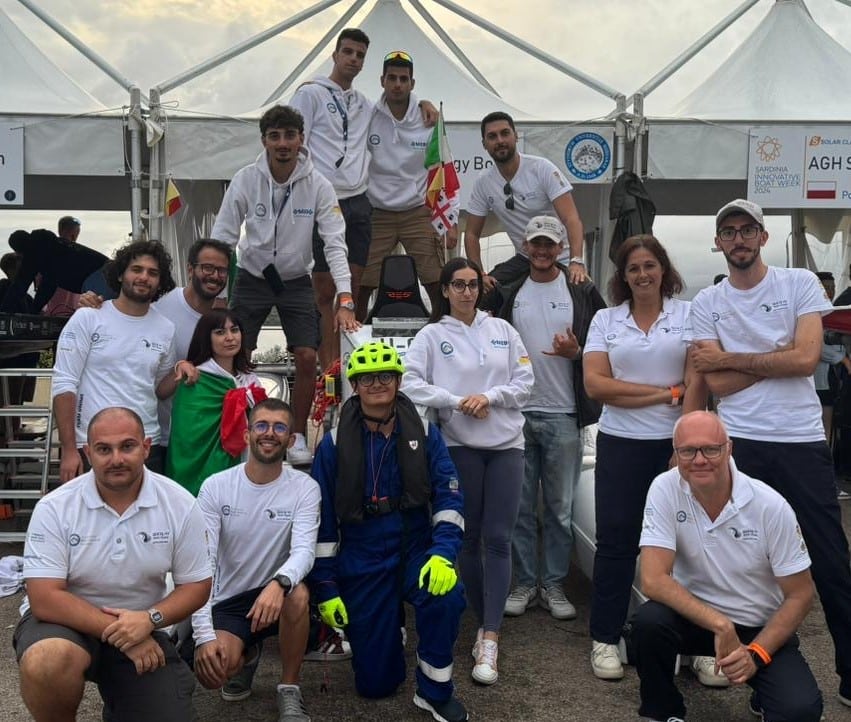
The Messina Energy Boat team is made up of students from different master’s and bachelor’s degree courses at the University and it will be the team’s second participation in the competition. The passion for the sea and new technologies related to boating are the foundations that the team has been following for the past two years to improve its boat.
The new Guglielmino 2.0 boat project includes a redesign of the cockpit using lightweight materials (composite), replacing the engine, and developing a data transmission system to make the boat SMART. Additionally, the team plans to integrate a photovoltaic system to increase the solar energy supply.

Université de Technologie de Troyes
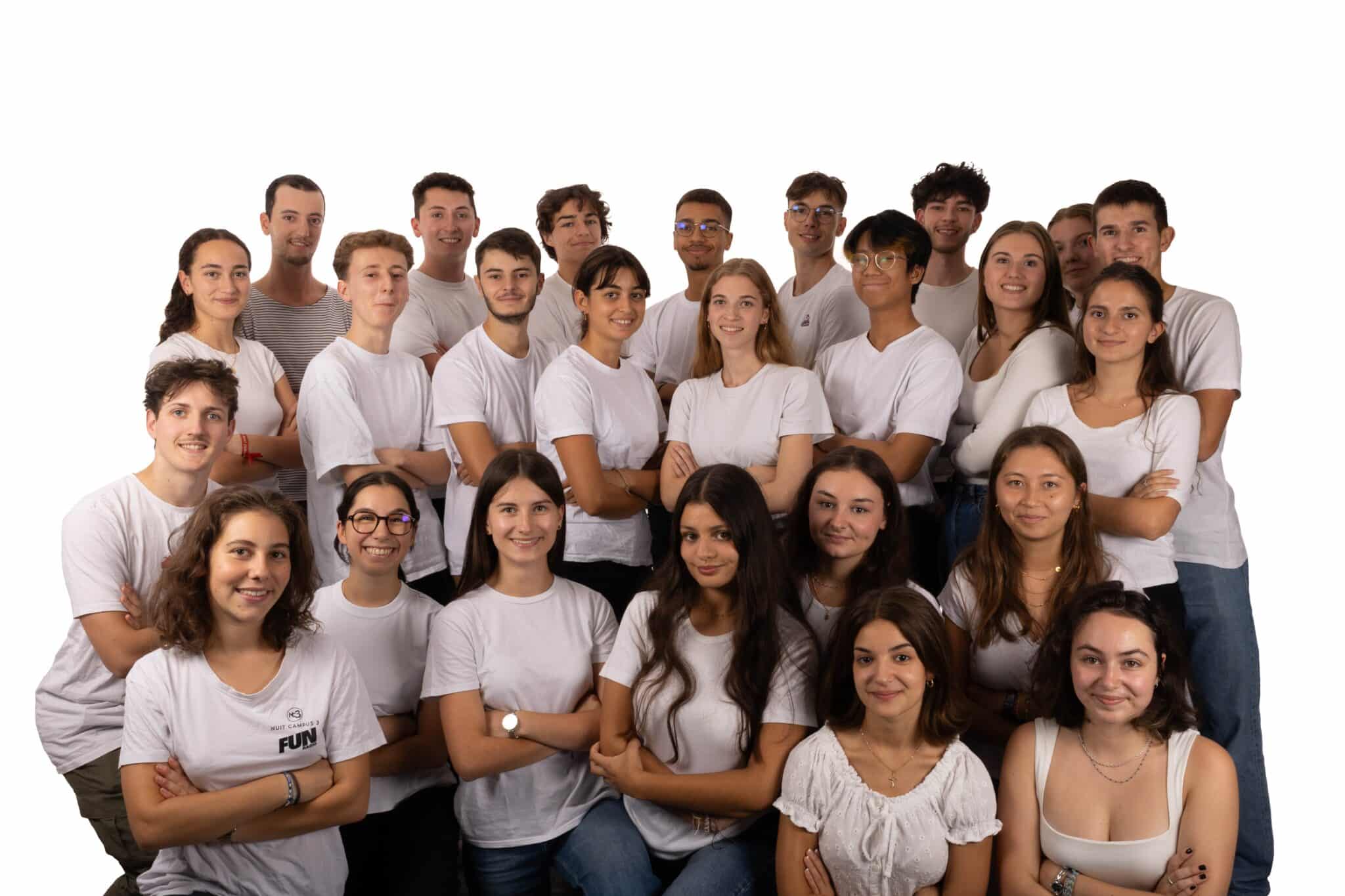
Néréides is an ambitious student project led by future engineers from the University of Technology of Troyes (UTT), dedicated to designing, manufacturing, and testing a hybrid hydrogen and battery-powered boat. Comprising 28 passionate students, the Néréides team will participate in the Monaco Energy Boat Challenge 2025, taking place from July 2 to July 5 in Monaco. This project aims to push the boundaries of sustainable innovation and advance marine technology. Their commitment to sustainability and technological innovation
drives them to explore cutting-edge solutions for the maritime industry. The creation of their boat is divided into four main parts: the design of the engine, the energy chain, the cockpit, and onboard systems.
This year, the Néréides team is aiming to increase the hydrogen contribution in their hybrid system to reach 80% hydrogen and 20% battery power. Additionally, they are developing a new cockpit made from carbon fiber (or an equivalent material) to enhance performance and reduce weight. A dual-propeller transmission system is also being designed to optimize the boat’s propulsion efficiency. The team will take full responsibility for the creation and integration of all onboard embedded systems, ensuring that every aspect of the boat is carefully engineered to meet the demands of the competition. These developments reflect the team’s commitment to pushing technological boundaries and creating a more sustainable and efficient hydrogen-powered vessel for the Monaco Energy Boat Challenge 2025.

Politecnico di Milano
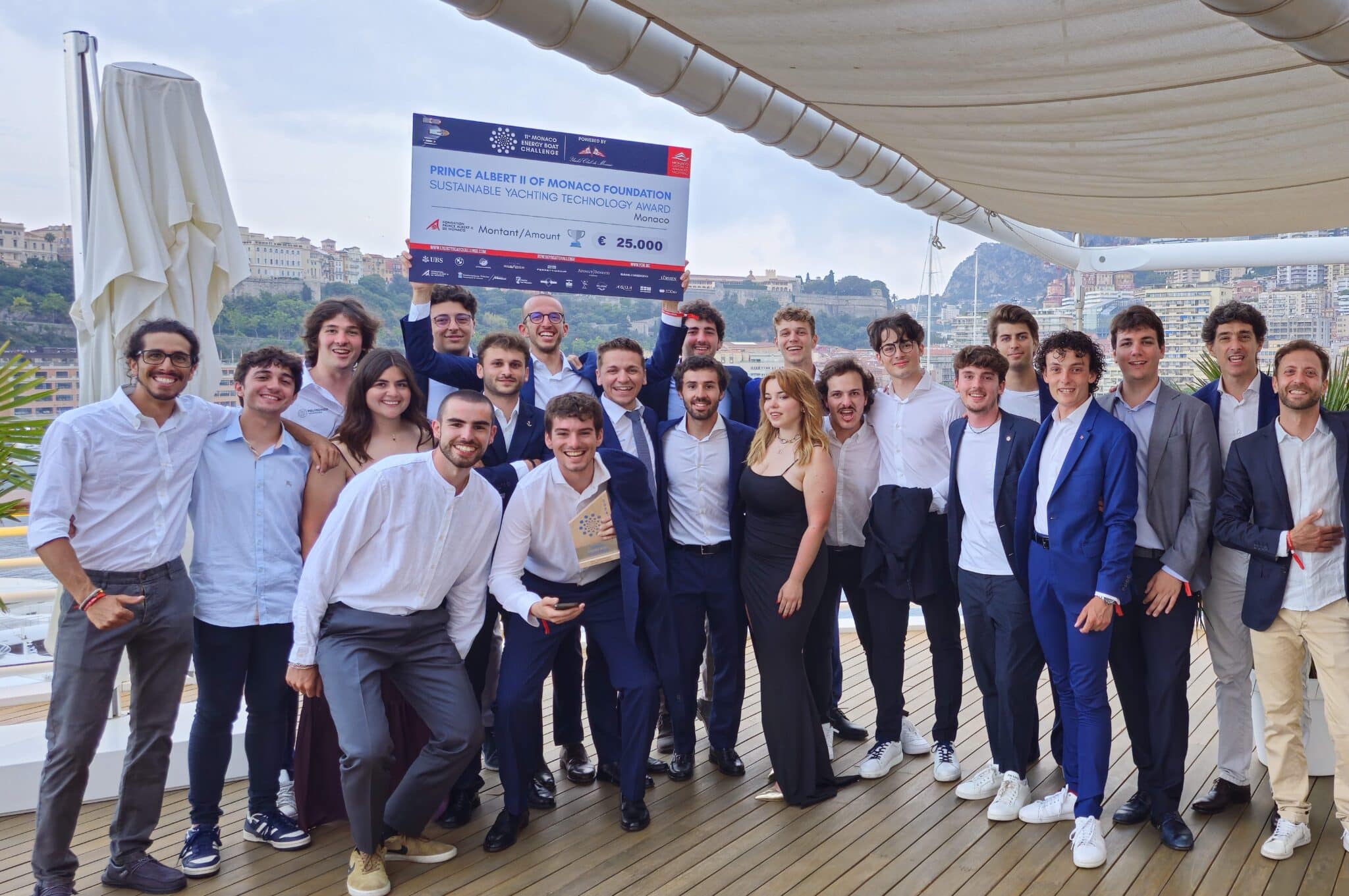
PHYSIS PEB is an innovative student team from the Politecnico di Milano, founded in October 2021, focused on sustainable boat design and engineering. The team brings together students with various backgrounds, from engineering, architecture, and design, including many international members, fostering a multidisciplinary and inclusive environment. PHYSIS PEB specializes in developing eco-friendly and energy-efficient solutions for marine vessels, combining cutting-edge technology with environmental responsibility. Since its creation, the team has achieved significant milestones: in 2022, we reached the podium at the Monaco Energy Boat Challenge and won the Eco Conception Prize; in 2023 we earned the prestigious Innovation Prize. In 2024, PHYSIS PEB further cemented its reputation by winning the FPAII Award, a testament to its dedication to redefining the future of boating through research, teamwork, and a commitment to sustainability.
The PHYSIS 2024 boat project focuses on practical solutions for the maritime sector, combining innovative design with sustainability. The vessel uses modern technologies and efficient systems to improve performance while reducing environmental impact. Students from engineering, design, and architecture are working with industry professionals to create innovative projects to develop a boat that meets real-world challenges and promotes sustainable practices in the maritime field.

Politecnico di Torino
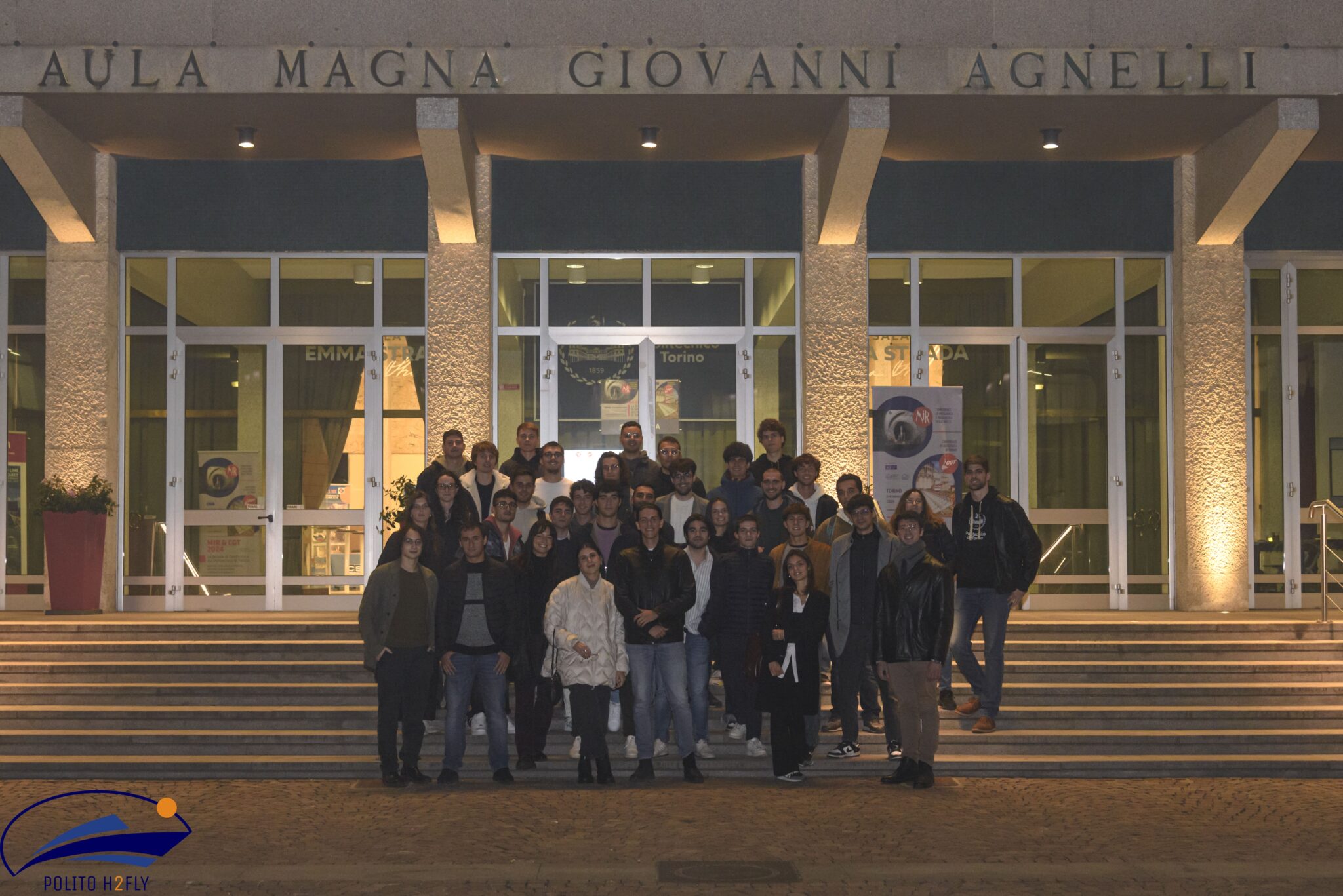
PoliTo H2Fly is a student-led initiative from the Politecnico of Torino, focused on designing and building a competitive catamaran with hybrid propulsion, primarily using sustainable energy sources. This project allows students to apply theoretical knowledge while addressing key challenges such as zero-emission mobility, renewable energy use, and eco-friendly materials. Through this experience, team members develop both technical and organizational skills, collaborating towards a common goal.
The team’s main focus this season has been on weight reduction, achieved through an in-depth study of the boat and the introduction of composite materials such as carbon fiber and basalt fiber, the latter aligning with our commitment to sustainability. Additionally, a significant area of development has been the design and production of a custom battery pack tailored to our specific needs, enhancing both efficiency and lightness. Furthermore, the fluid dynamic study of the boat has enabled us to begin designing our own custom propeller.

Polytech Nantes
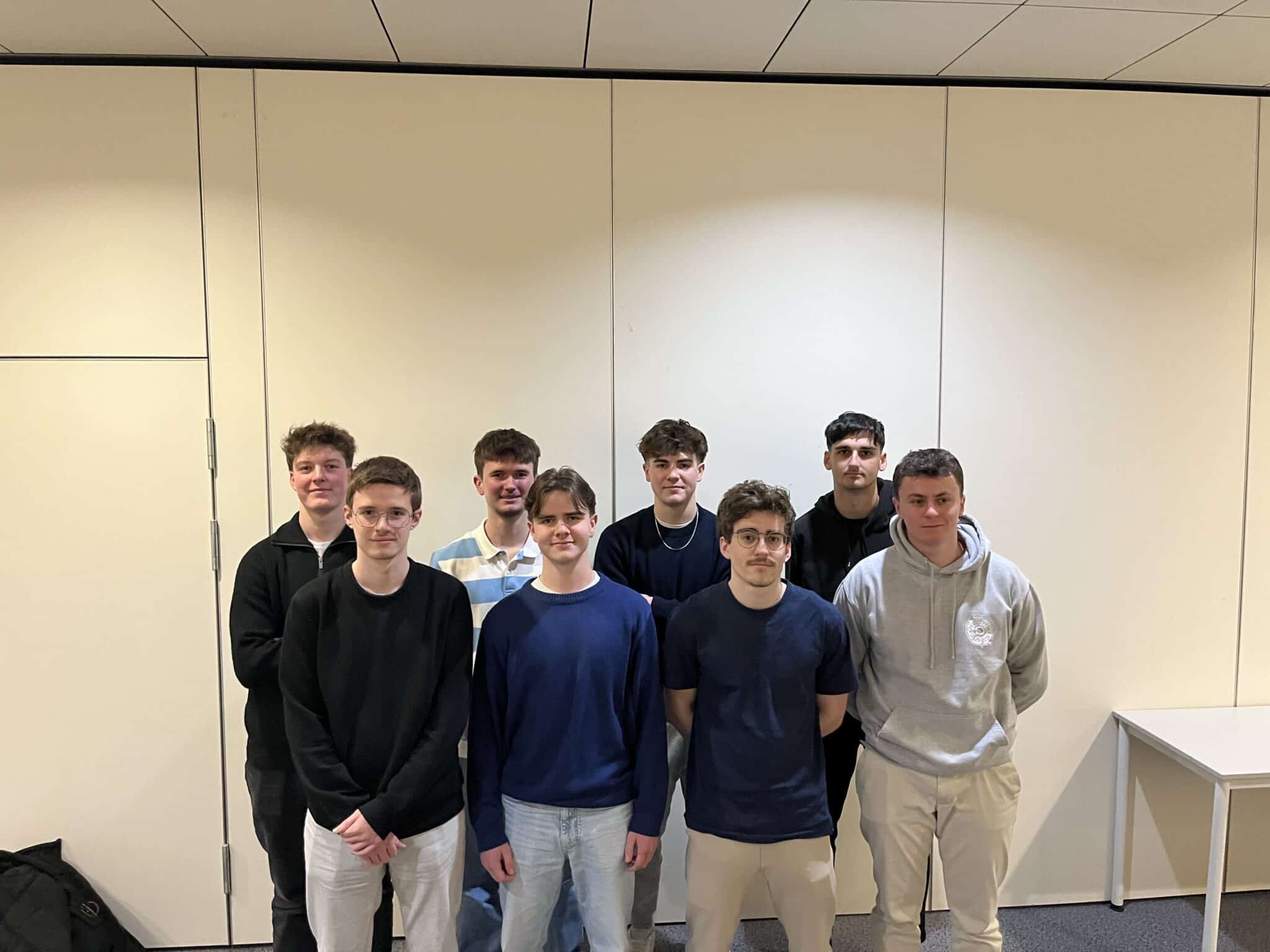
Our team is made of 8 technical students in their second year at Polytech Nantes. We are supported by a team of professors specialized in the fields of energy and mechanics.
We work closely with our partner, SBM Offshore, on a new H2 concept and prototype development. We would like to gain experience in the hydrogen mobility field during our first participation to further develop our prototype for the next edition.

Qatar University
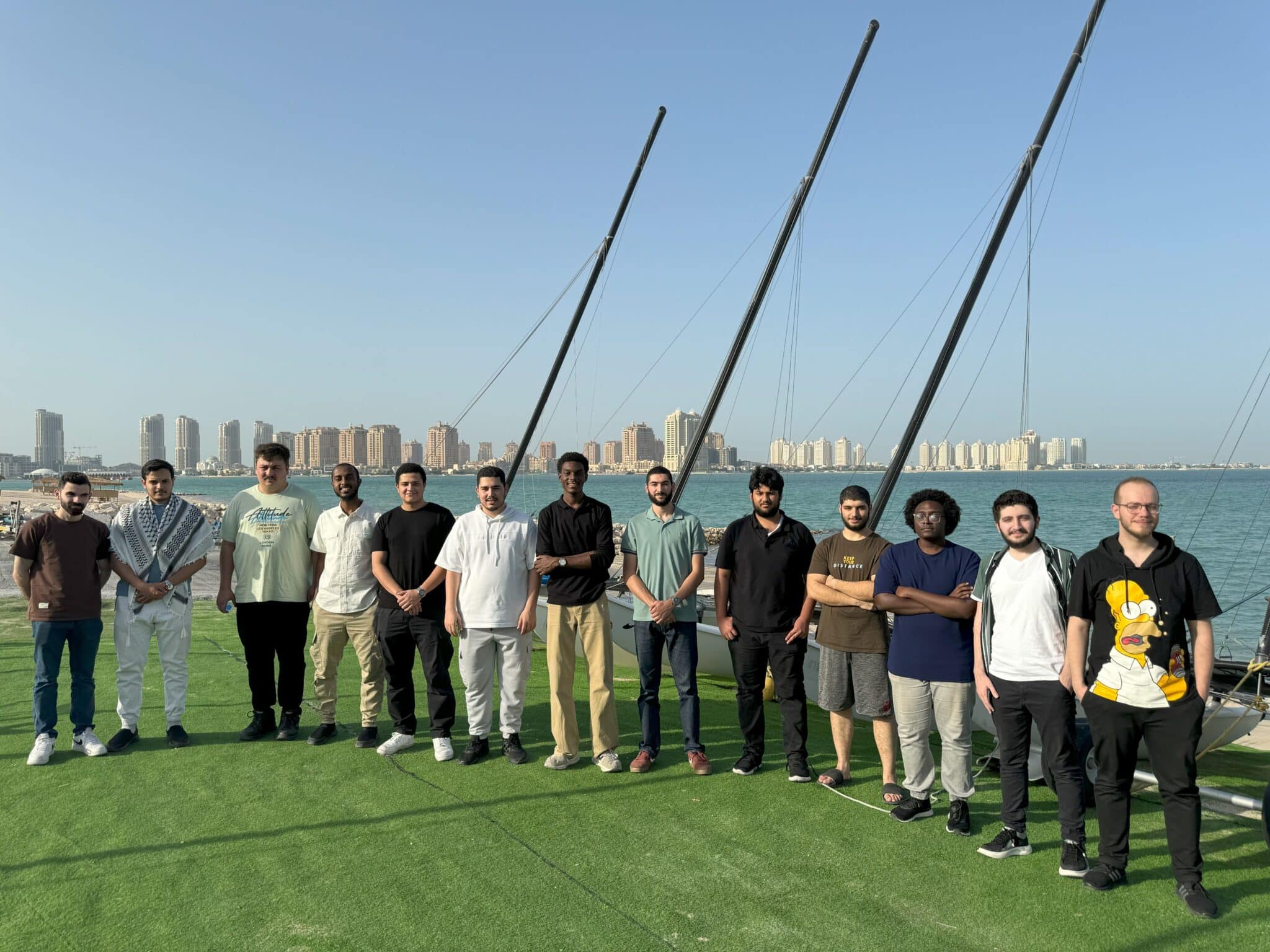
Sambuk Racing is a student-led team from Qatar University’s College of Engineering, dedicated to advancing sustainable marine technology. The team brings together diverse expertise from electrical and mechanical engineering, as well as media and relations, to tackle complex engineering challenges. Our mission is to push the boundaries of marine technology, providing hands-on learning opportunities for students while contributing to the advancement of the yachting industry. We strive to inspire future innovators by showcasing the potential of engineering and sustainable technology.
Sambuk Racing is participating in the 2025 Monaco Energy Boat Challenge with an innovative marine project focused on developing high-speed, sustainable propulsion technology. Our key innovation involves a high-speed propeller designed for rim drive technology, offering greater efficiency and performance compared to traditional systems. The main characteristics of our project include a strong focus on sustainability, cutting-edge propulsion technology, and the integration of renewable energy solutions for marine applications. Our goals are to push the limits of marine technology, provide real-world learning opportunities for students, and contribute to the advancement of the yachting industry with a focus on sustainability and innovation.

ENSTA Paris
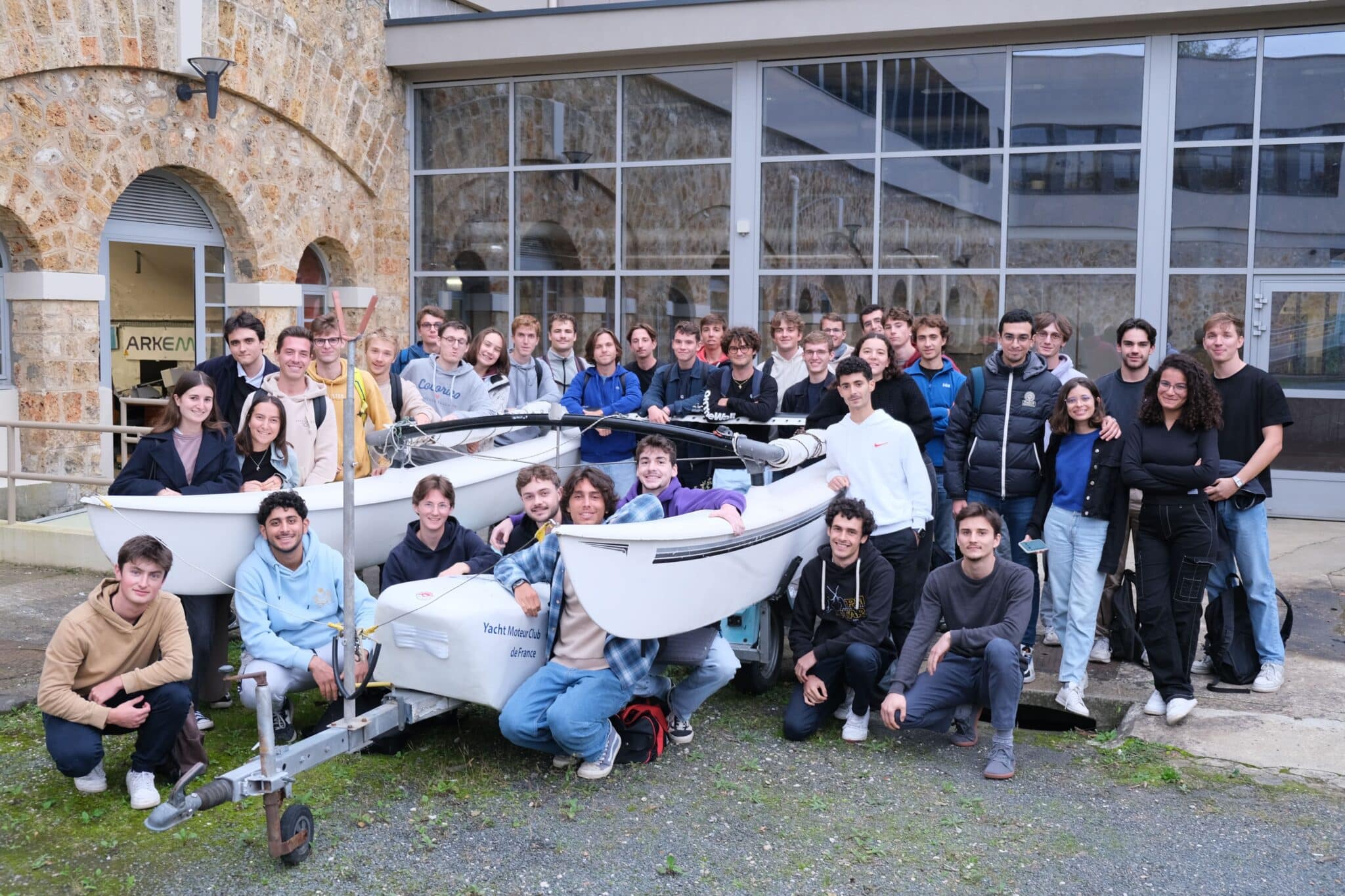
Tameo represents ENSTA Paris, one of France’s top engineering schools, at the Monaco Energy Boat Challenge. This team of 40 students is committed to designing and building an innovative energy-efficient boat. With four consecutive participations in the challenge, Tameo has developed expertise in integrating sustainable technologies into maritime transport. Each year, the team applies advanced engineering skills and collaborative spirit to improve their boat’s performance while addressing environmental challenges.
This year, Tameo focuses on innovation to enhance performance and maneuverability. The team has implemented a differential thrust system, allowing precise control and increased efficiency during turns. Motor power has been upgraded, with a thorough optimization of their placement to maximize propulsion and balance. The steering system has been completely redesigned to improve handling, while significant efforts have been made to reduce the overall weight of the boat, boosting its efficiency and speed. We are also working in parallel on compressed air as a secondary energy source.

Kumaraguru College of Technology
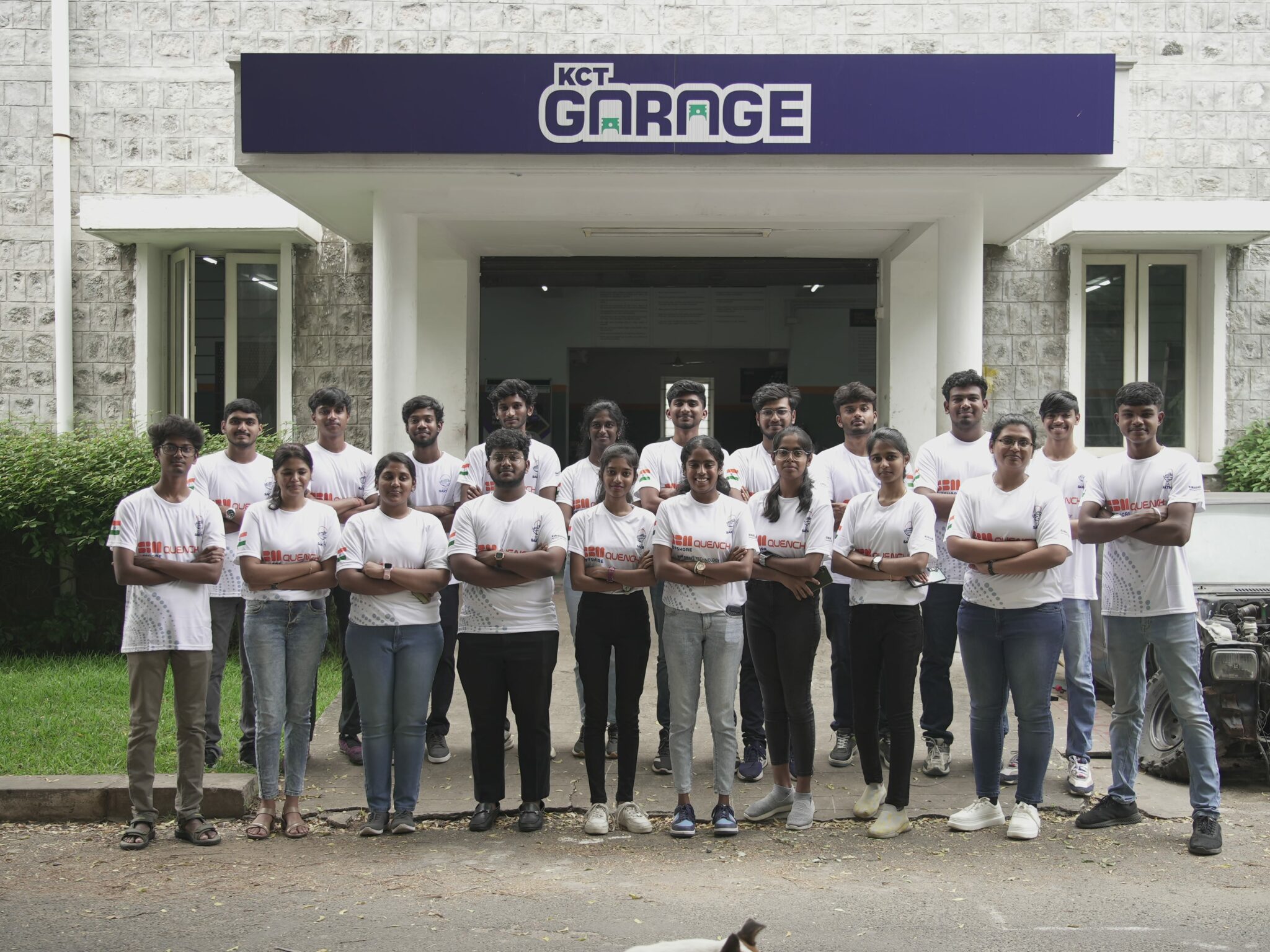
Sea Sakthi is focused on advancing sustainable marine technology through innovative approaches and collaboration. By employing modern designs, forging industry alliances, and conducting thorough research, the team reimagines maritime sustainability. This initiative turns challenges into opportunities to showcase eco-friendly marine solutions on an international platform. With a focus on learning, experimentation, and consistent improvement, Sea Sakthi aims to establish new standards in sustainable marine innovation, marking a significant step forward in its commitment to a greener future
Our project redefines marine sustainability and efficiency by integrating cutting-edge technology and ecofriendly materials. Drawing inspiration from the Yali concept, the design emphasizes streamlined performance and durability. We prioritize carbon-free materials like flax fiber and bio-resin, reducing environmental impact without compromising strength. Technological advancements include AR glasses for real-time navigation and AI-driven systems for energy management and pilot support. Key features include a custom single outboard propulsion system powered by a 9.6kW axial flux motor and a highperformance NMC 96V 100Ah battery pack, housed in a lightweight hydrodynamic structure optimized for speed and balance. Our goal is to create sustainable solutions for diverse race conditions in marine applications, reducing carbon footprints, and showcasing scalable innovations on an international stage. Our project embodies dedication to innovation, collaboration, and environmental responsibility in advancing greener maritime technology.

Instituto Superior Técnico
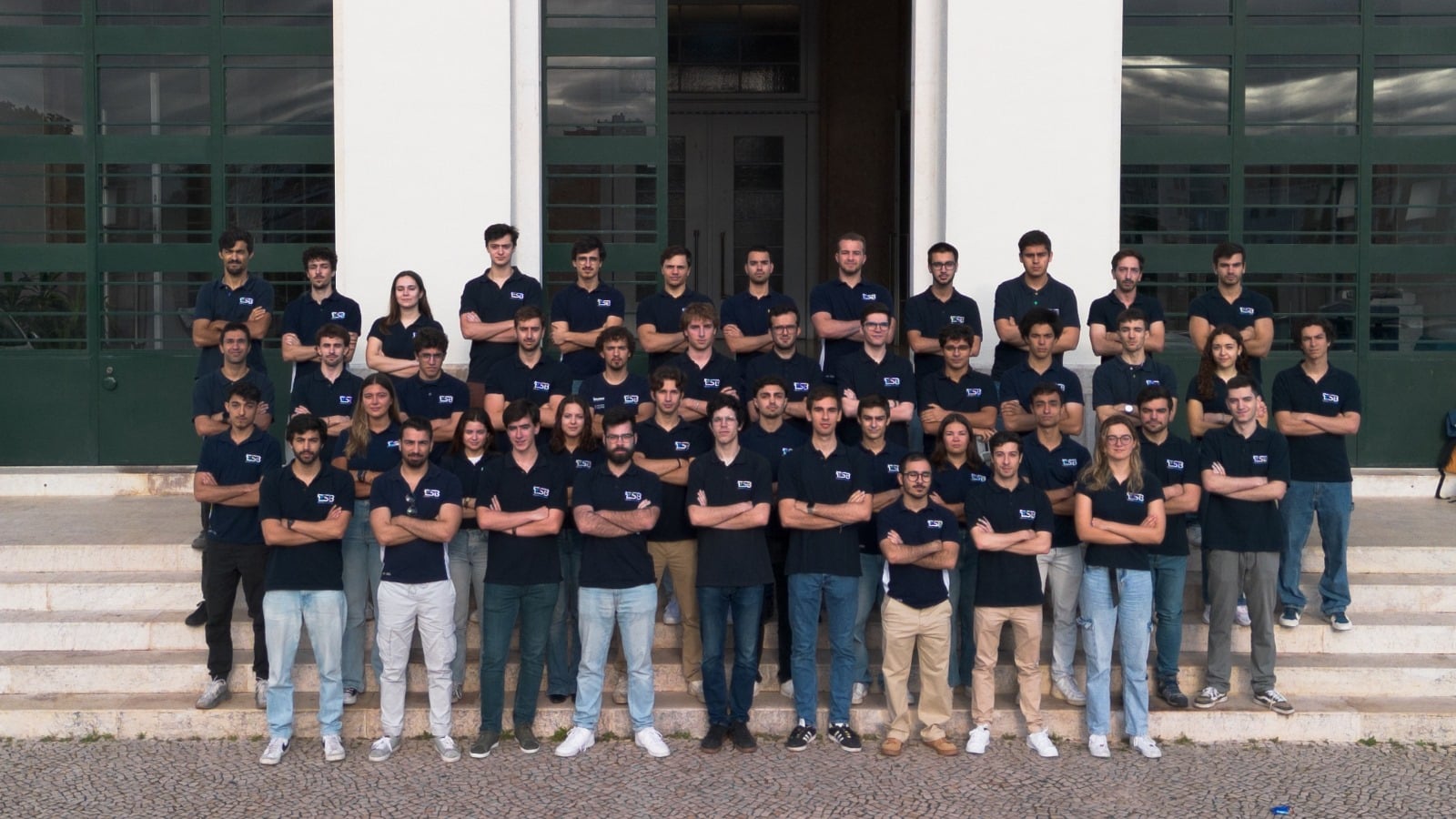
The Técnico Solar Boat is a university project composed of several students from Instituto Superior Técnico, skilled in various engineering courses, and specialized in the construction of competition vessels powered by renewable energies. Although the initial focus was solely on solar energy, the team has been expanding its portfolio, embracing Hydrogen as an alternative energy source and, more recently, also entering in the autonomous sector.
With three vessels from the São Rafael series and two from the São Miguel series, powered respectively by solar energy and hydrogen, as well as an unmanned autonomous prototype from the São Pedro series, the team will dedicate 2024/2025 to the maintenance and improvement of the São Miguel 02 and the completion of the construction of the São Gabriel 01. Both vessels will compete in 2025 at the Monaco Energy Boat Challenge. São Gabriel 01, in particular, will mark the creation of the most complex prototype in the project’s history, combining the technologies developed and studied by the team using both solar and hydrogen energy. This challenge, initiated in 2021, has been under development by the team for the past two years, and it will mark the first Sealab vessel of the team.

University of Bologna
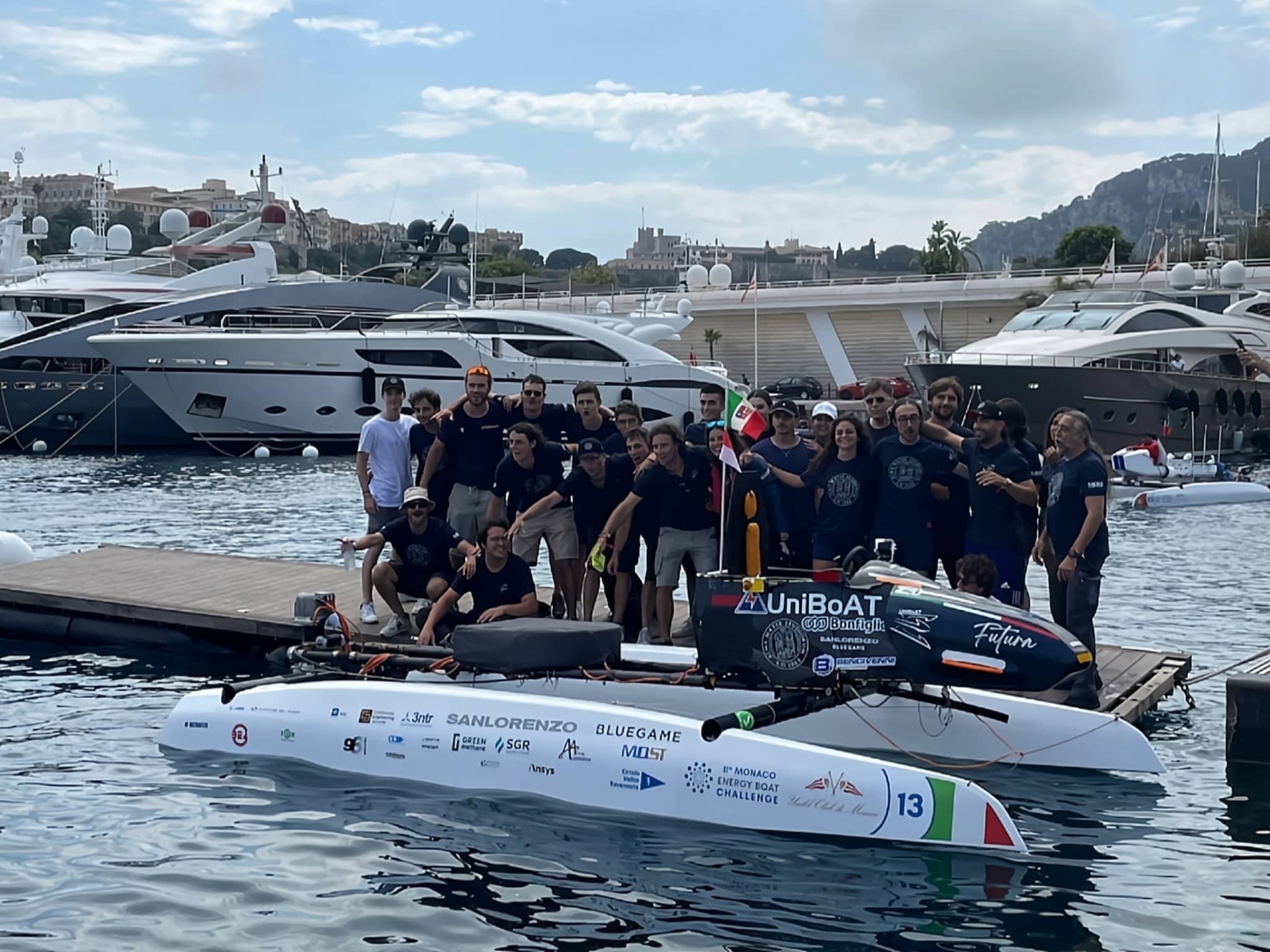
UniBoAT is an innovative teaching and research project born inside the Industrial Engineering Department of the Alma Mater Studiorum University of Bologna in October 2019. The team is devoted to the development and implementation of an eco-friendly and fully electric boat, through sustainable solutions. We participate for the fifth time as an emblem and demonstration of our efforts in the development and improvement of this field of research, having demonstrated the capacity for renewal of the entire system, taking up the challenges that the competition has provided us and broadening the horizons of the MEBC panorama.
This year, UniBoAT aims to completely revolutionize the catamaran presented at MEBC 2024, enhancing every aspect of the design. The team will introduce a new cockpit, inspired by the previous model but fully revamped, with a focus on lightness and aerodynamic performance. Additionally, UniBoAT has set the ambitious goal of renewing the powertrain system by designing custom battery packs and rethinking the hybrid system, incorporating a new fuel cell for greater efficiency. At the same time, the team is working on the second version of the fully in-house designed outboard engine, ready to be showcased in the future, aiming to improve last year’s challenges and build a reliable outboard motor.

Technische Universität Berlin
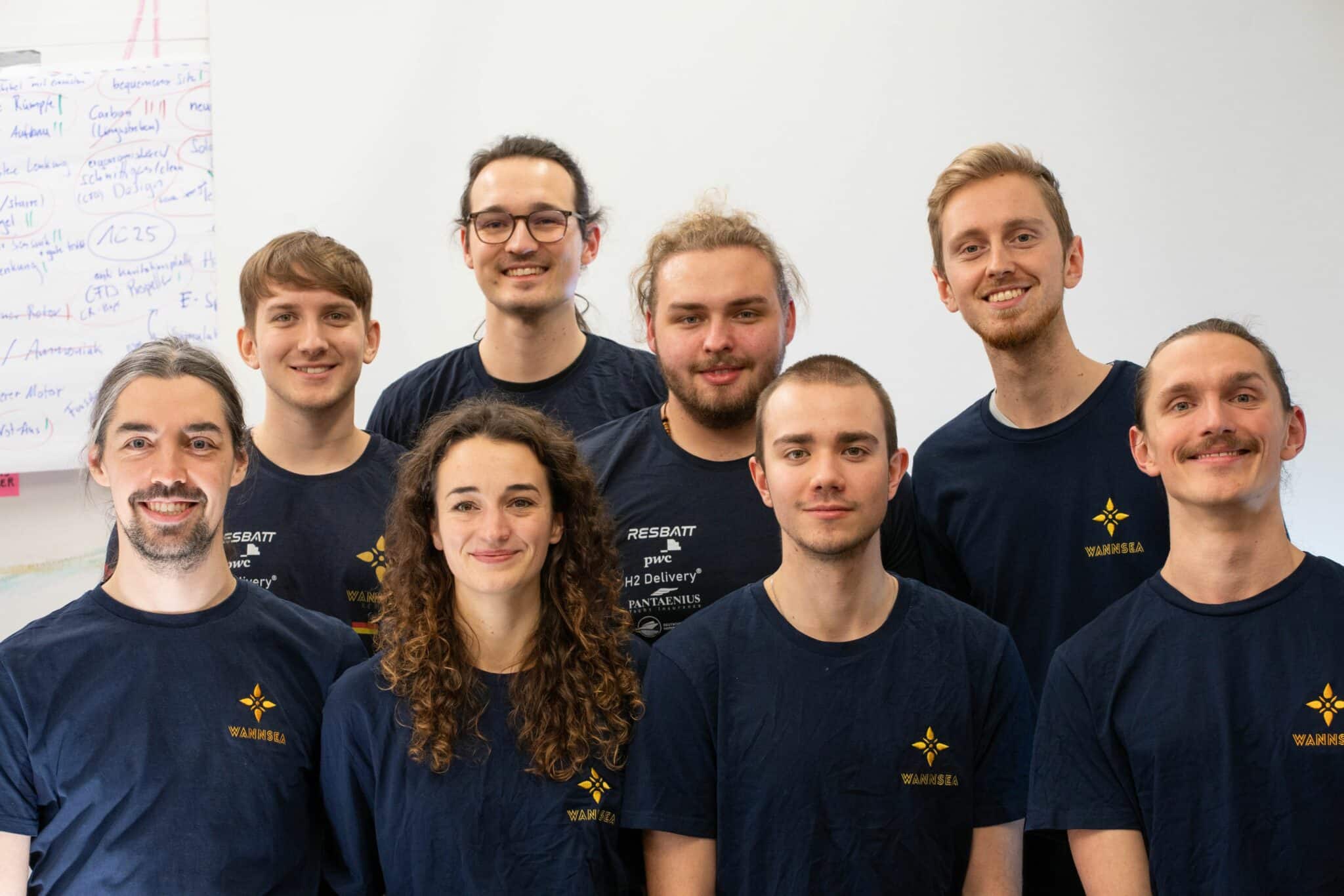
We are a dedicated team of students from the Technical University of Berlin, consisting of 25 members with diverse backgrounds. Representing 10 nationalities and 16 fields of study, we bring together a wide range of perspectives and expertise. Together, we are developing a boat powered by sustainable propulsion methods.
The boat we are developing at TU Berlin for the MEBC in Monaco in July 2025 is being improved with a strong focus on sustainability. We prioritize the use of recycled and alternative materials, such as natural fibers and eco-friendly composite materials, to minimize environmental impact while enhancing the vessel’s lightness. To achieve speed and agility, we are implementing a unique propulsion system featuring a custom designed electric motor specifically tailored for this boat, along with a bespoke propeller. The energy required to power the boat is supplied by our batteries and 4 square meters of solar panels. Advanced electronics and sensors control and monitor all systems to ensure optimal performance. This year, we are also incorporating foils into the design, enabling the boat to lift out of the water, significantly reducing drag and increasing efficiency. This cutting-edge innovation underscores our commitment to combining sustainability with high-performance engineering

UNIVERSITAT POLITECNICA DE VALENCIA
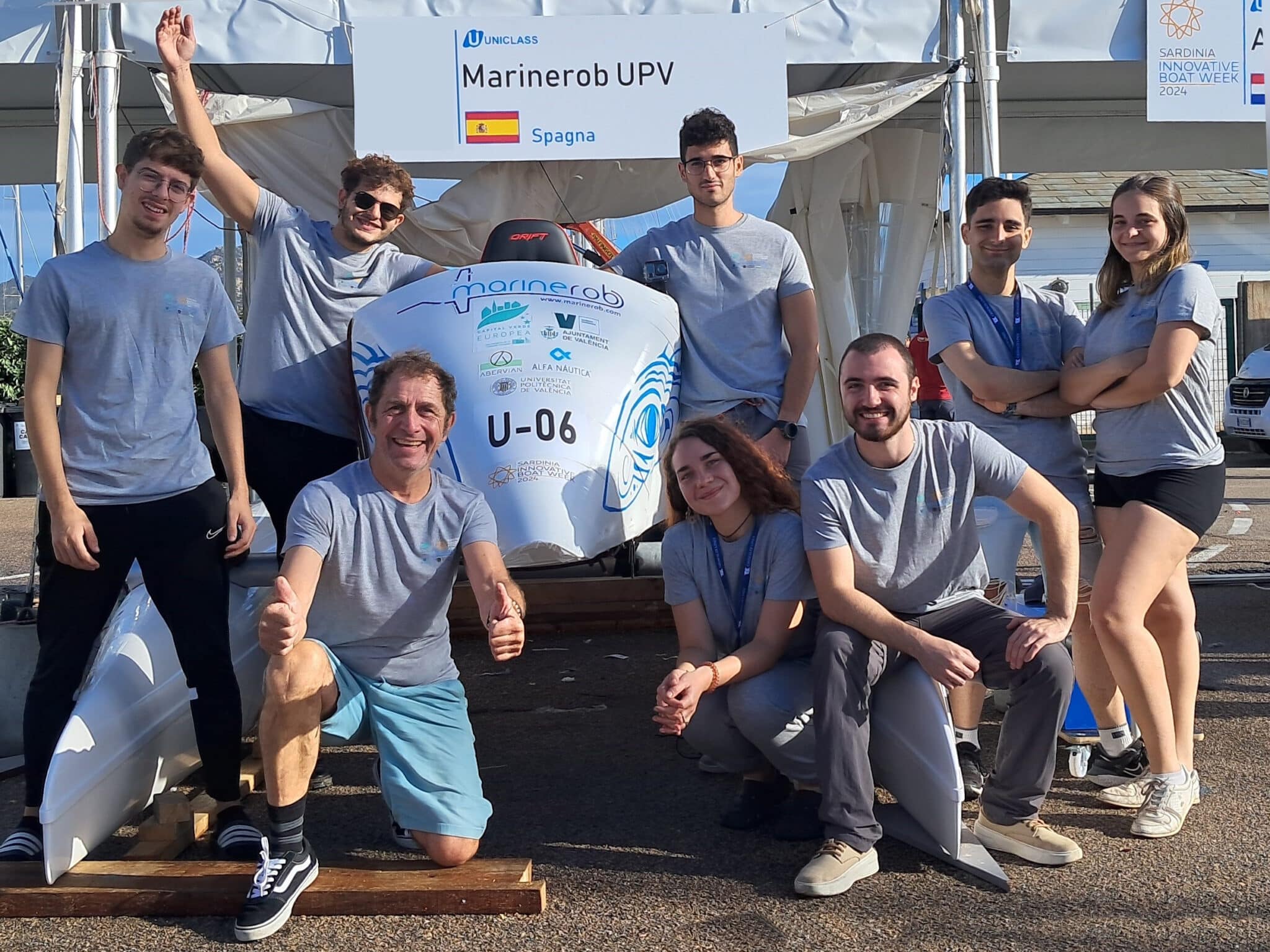
MARINEROB UPV TEAM was established in 2024 with the goal of engaging both university members and industry professionals in the development of cutting-edge technologies for the maritime and nautical sectors. One of the team’s primary objectives is to spark curiosity and interest within the university community in the fields of marine robotics, sustainable energy applications in maritime transport, and the development of future leaders in this area of engineering. Javier Busquets-Mataix, the team leader and principal promoter of both the team and the university’s activities in this field, brings extensive experience in leading multidisciplinary teams to tackle and solve complex, high-demand challenges. The team is made up of engineers, professionals, and both graduate and undergraduate students from a variety of academic disciplines across the university. The central aim is to foster collaboration and teamwork in pursuit of shared goals, ultimately achieving success together.
The main innovation of the MARINEROB UPV team project is the application of automation to the control of the prototype. Several systems based in the most advanced techniques of control, pursue the optimization of the power requirement, regeneration of excess and particularly, the autonomous control of the navigation parameters and prototype working envelope, based on the external conditions. This behavior is attained by means of AI and other AR and advanced computing techniques for improving the prototype behavior, propulsion efficiency, steering and prototype attitude. In addition, a dynamic generative environmental energy harvesting system allows the prototype to maximize its range and features by reducing their internal power requirements.